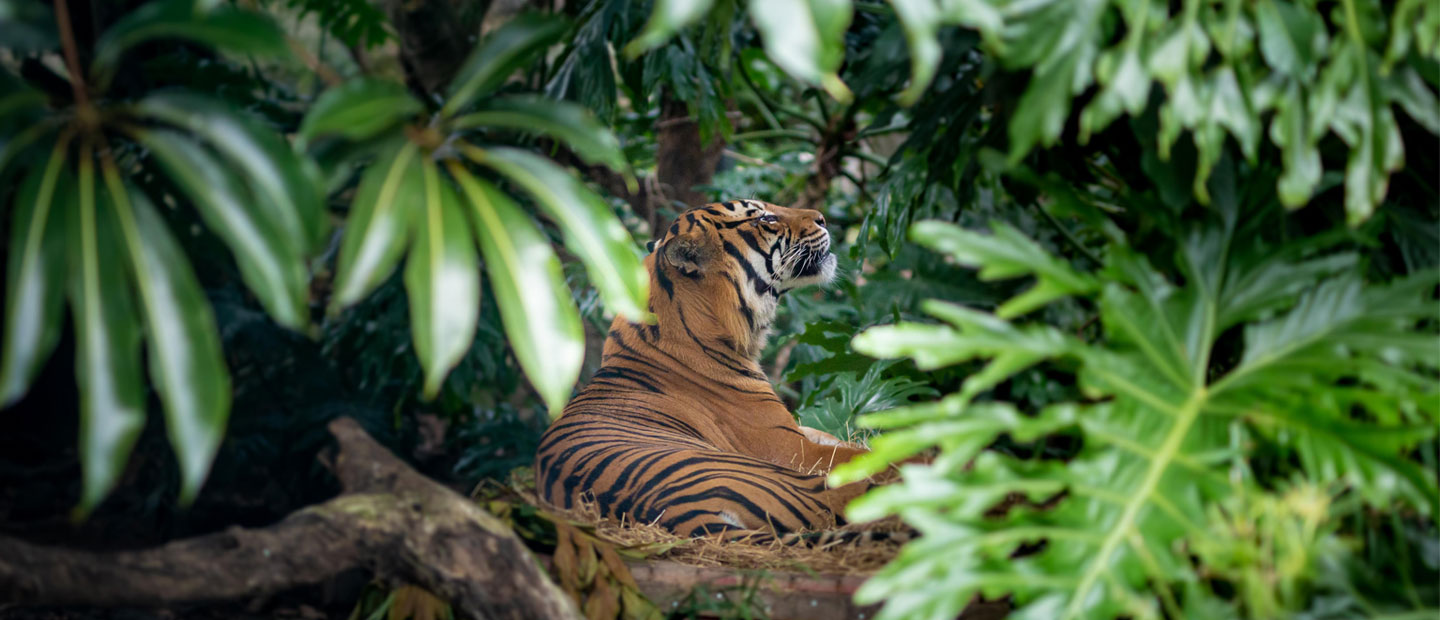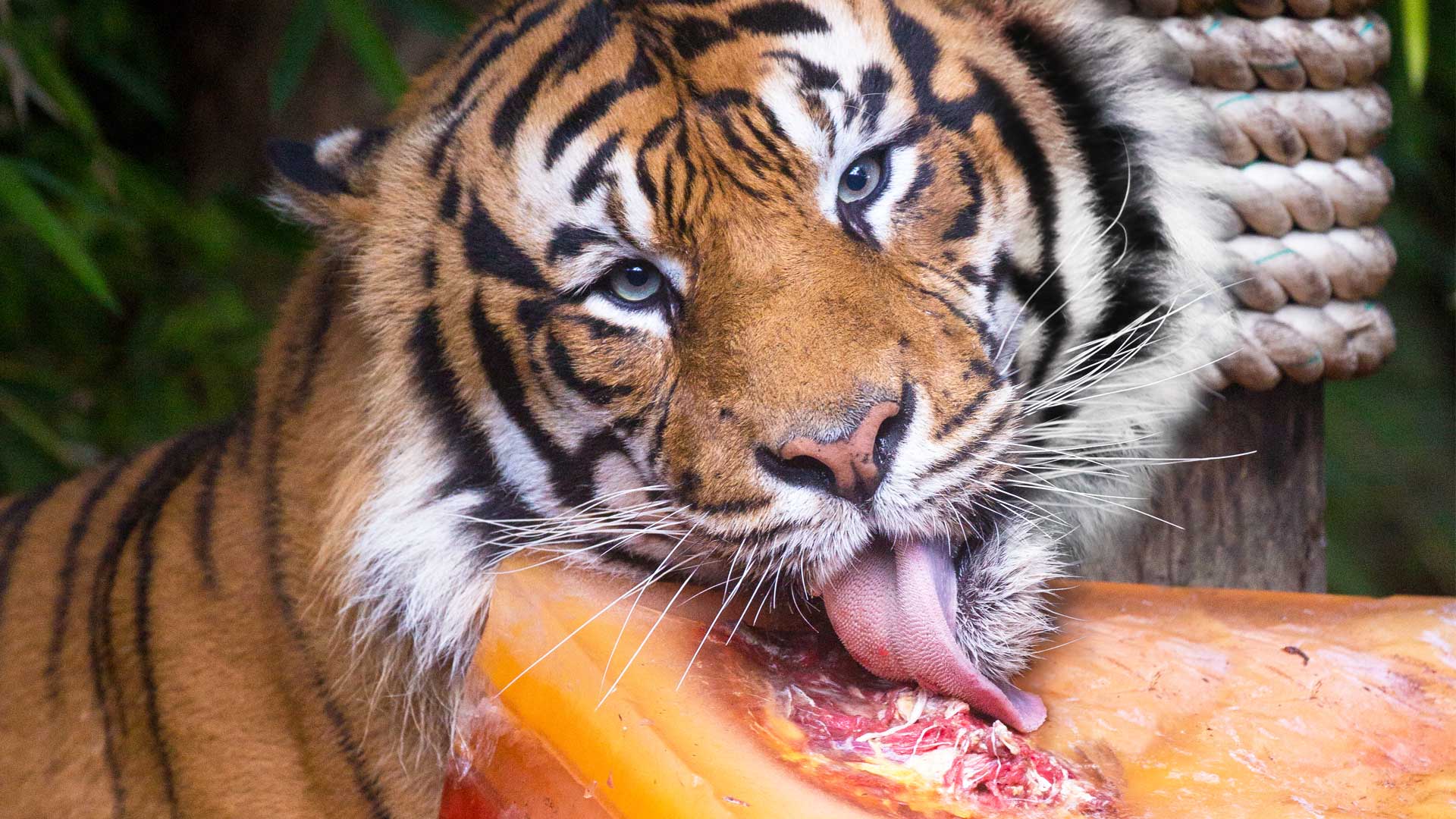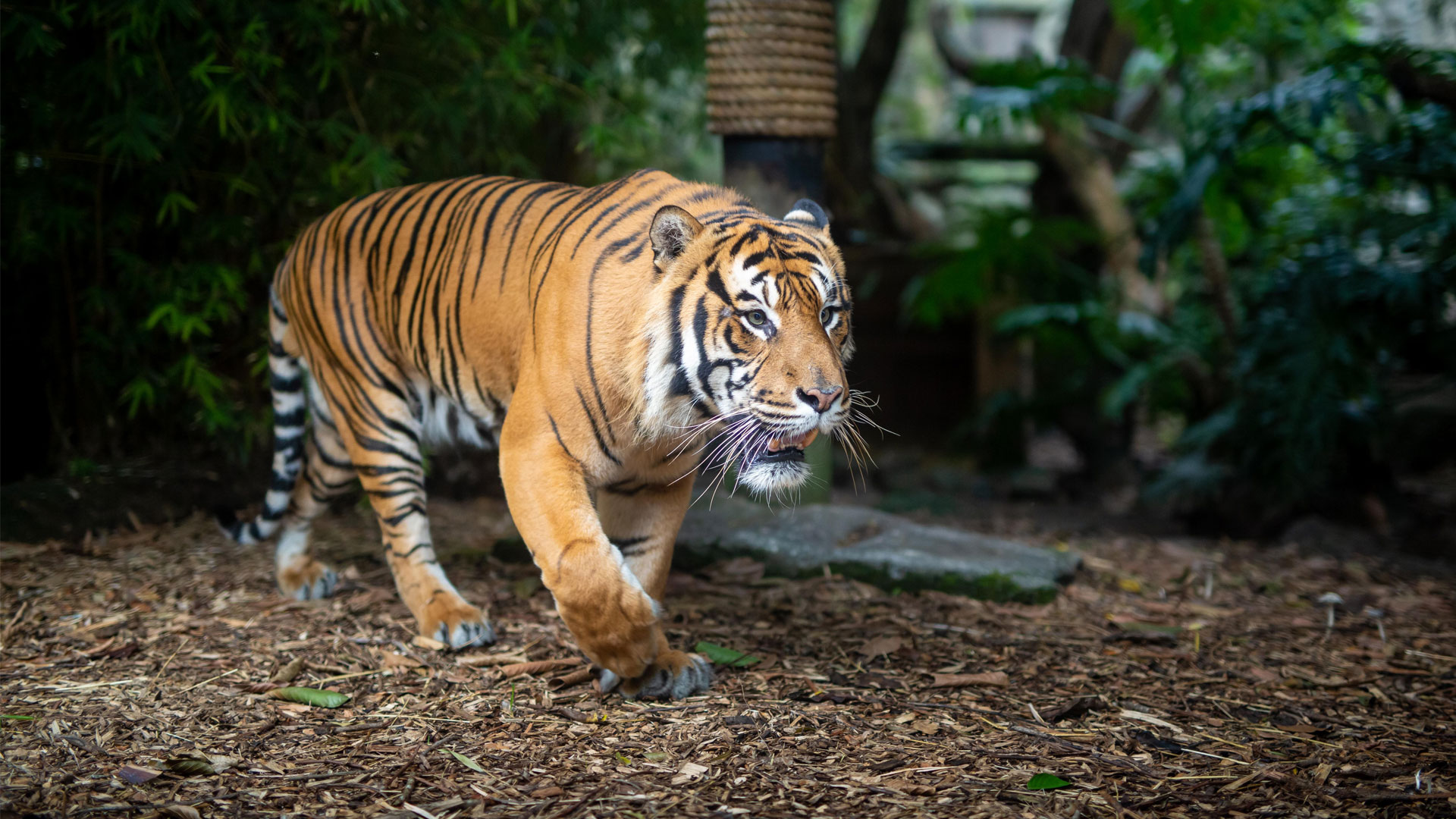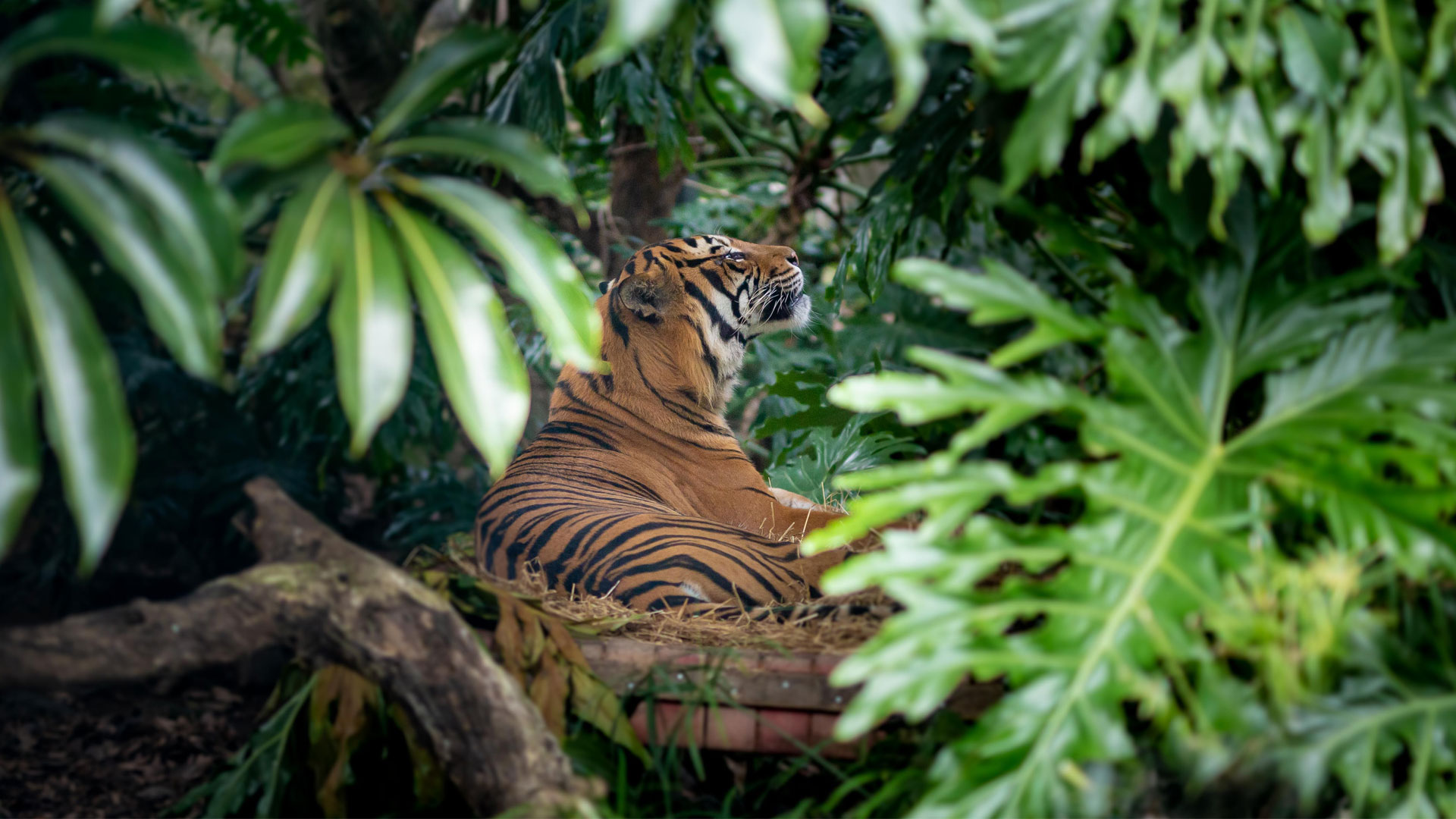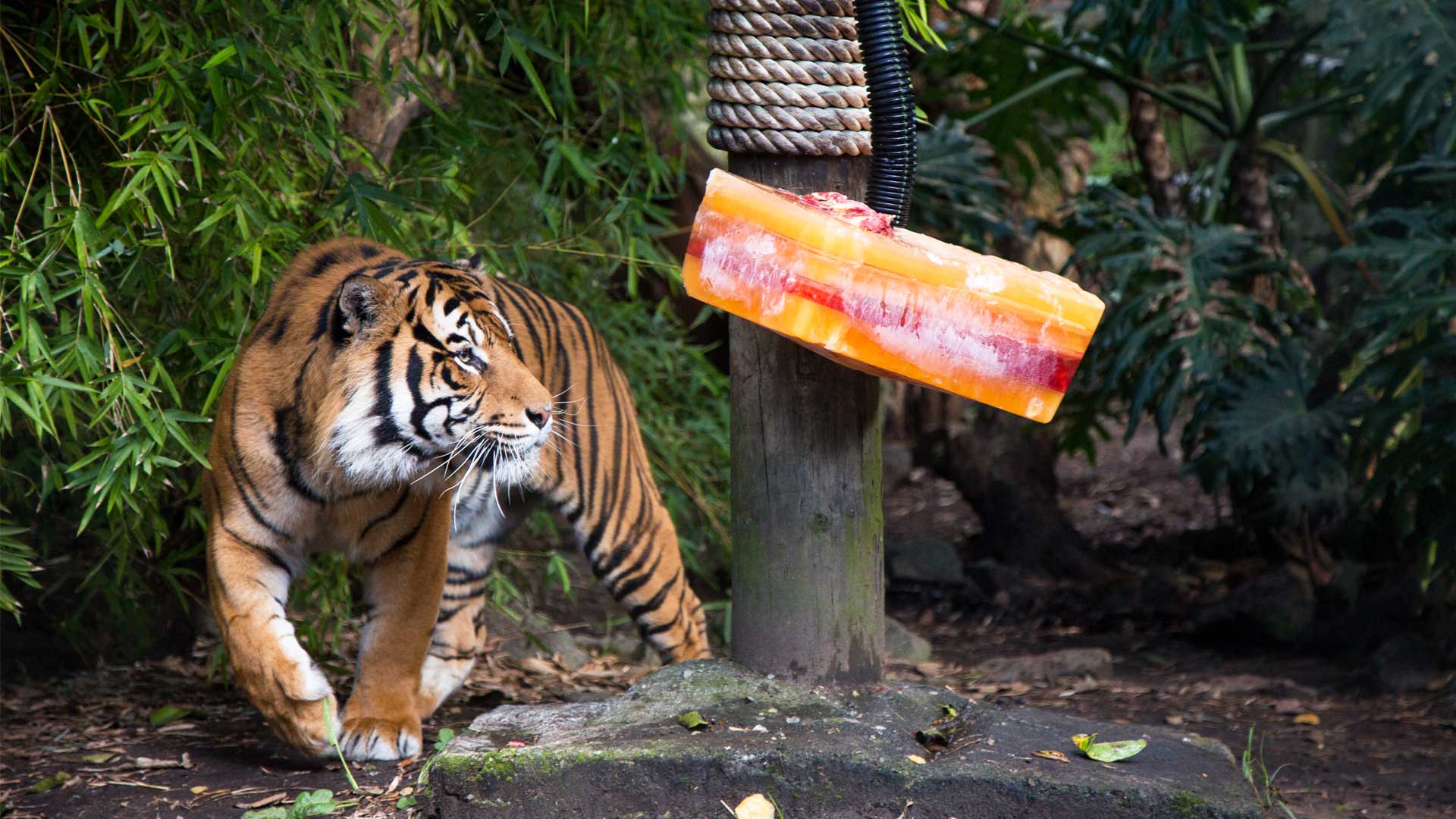Our experienced animal and veterinary staff have been closely monitoring 11-year-old Berani’s health since he began exhibiting signs of discomfort and stress in early January for which he was treated. Over the past three to four months, he began to show symptoms of a more serious illness - including loss of appetite, diarrhea, weight loss, and further changes to his behaviour. Berani underwent two separate health checks under general anaesthetic with our vet team in May, which included an ultrasound and endoscopy. Some inflammation of Berani’s small intestine was discovered, but no diagnosis could be made.
Our vets and animal staff worked closely with an Internal Medicine specialist to give Berani the best possible treatment, including antibiotics, steroids, pain relief and behavioural drugs in order to maintain Berani’s quality of life. After early positive responses to treatment, Berani’s health and quality of life continued to decline despite the exhaustive efforts of our staff, resulting in the difficult and kindest decision to euthanase him.
“Initial post-mortem results have been inconclusive, however some of the treatments Berani received are likely to have masked some of the physical signs of disease. All the symptoms point to an underlying clinical issue. It can be frustrating and upsetting, but sometimes we encounter disease that we can neither diagnose nor successfully treat. We hope that further analysis of his histology will reveal more,” says Auckland Zoo senior vet, Dr An Pas.


